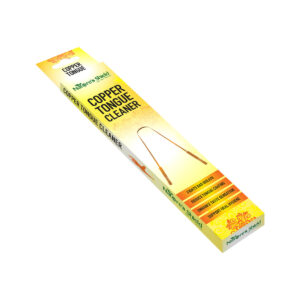Leaky gut, aka increased intestinal permeability, is one of my favourite topics. There’s ample scientific resarch on this phenomena and it’s great to see it getting the attention it deserves so people can regain control of their health. BUT despite all the evidence for the role of leaky gut in a host of conditions including auto-immunity, metabolic dysfunction, depression and liver disease, the current treatments are a bandaid at best.
In the words of gut microbiome guru and PhD Dr Jason Hawrelak, the surface area of human intestines is around the size of a tennis court. Now imagine taking a tablespoon of slippery elm, glutamine or aloe vera and smearing it on that tennis court. You won’t cover much, so why do we expect this treatment to somehow heal the entire lining of the gut?
The secret is in the expansive gut microbiome.
If you have identified leaky gut through a stool test or lactulose test run by your practitioner, read on to find out 3 reasons why your gut is leaky and what to do about it. In most cases, constant consumption of gluten will further compromise the integrity of the gut wall.
1. You have a deficiency of butyrate leading to leaky gut
Butyrate is one of the very important short chain fatty acids produced by beneficial bacteria in the gut. It is a natural byproduct of their fermentation of foods. Some examples of butyrate producing species include Faecalibacterium prausnitzii, Roseburia species and Eubacterium rectale. Out of all the short chain fatty acids, butyrate is used as the main fuel source used by the cells that line the intestinal wall, called enterocytes. Butyrate is like oxygen to them.
Low levels of butyrate are typically seen in chronic inflammatory bowel conditions like Crohn’s or colitis but it can also occur with Coeliac disease, cancer, chronic fatigue and individuals who have had very aggressive antibiotic therapy. The cause of low butyrate is having depleted levels of the bacteria that produce it. Those bacterial species rely on a certain diet for them to continue flourishing. This is why long term low FODMAP diets often lead to severe depletion of Faecalibacterium, and therefore butyrate.
2. You have an overgrowth of bacteria in your gut microbiota that produce endotoxins
I talk a lot about endotoxins so feel free to check out those articles. Certain families of gram-negative bacteria in the gut, particularly proteobacteria bacteroidetes and actinobacteria contain endotoxins like lipopolysaccharide (LPS) in their outer membrane. When these bacteria die off or undergo “lysis” they shed those endotoxins into the gut.
LPS can damage the intestinal lining and create inflammation throughout the body. We can handle a certain amount of endotoxins. However, when the gut microbiome is shifted so that it has an abundance of these bacteria, often the person will feel awful and develop food sensitivities. You are at risk of having too much endotoxin producing bacteria if you have a high fat diet, since fats cause the release of bile which feeds these species.
3. You have an overgrowth of the yeast Candida in your gut
Candida overgrowth can damage the lining of the intestinal wall. This is because it has the ability to penetrate and invade the intestinal mucosa, leading to physical damage to the intestinal barrier. This damage can create gaps or openings between the cells that line the gut, allowing larger molecules, toxins, and undigested food particles to enter the bloodstream.
Candida overgrowth triggers an immune response in the gut, leading to chronic inflammation which further compromises the integrity of the intestinal barrier. Add to this, candida can produce toxic byproducts like acetaldehyde and gliotoxin, as part of its metabolic processes. These toxins can damage the gut lining and contribute to leaky gut.
So how do you fix leaky gut?
1. Support your population of beneficial bacteria which produce butyrate.
2. Suppress the endotoxin producing bacteria or Candida
You can do this with antimicrobial herbs (but don’t go overboard), probiotics like Bacillus coagulans and you can also use lactoferrin to sweep up the endotoxins themselves. For Candida, certain strains of Saccharomyces boulardii or Lactobacillus can work well.
And of course you need to clean up your diet – take out all the gluten, take away fried foods and try a Mediterranean style diet for a few months with lots of omega 3 sources which support the gut pH.
Rather than relying on glutamine to fix your gut, let your own gut microbiome do the heavy lifting and you will be feeling better in no time. Long term health doesn’t come in a bottle – your body can take it from here.




